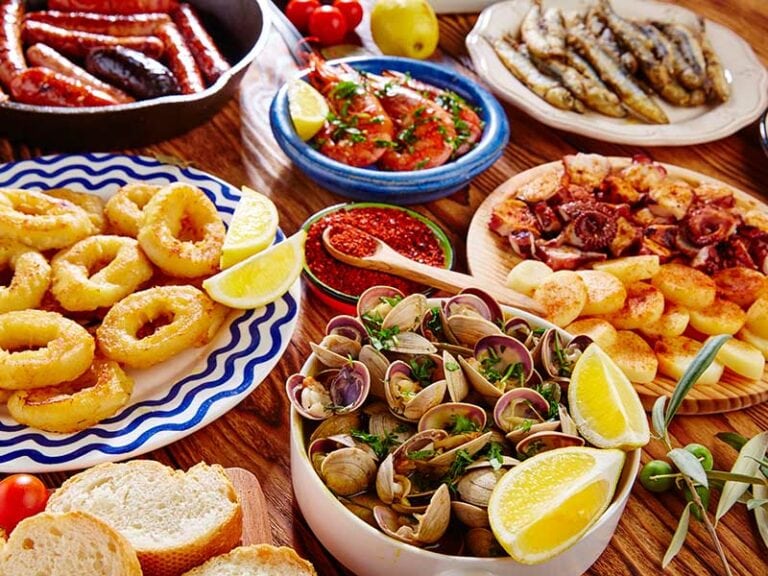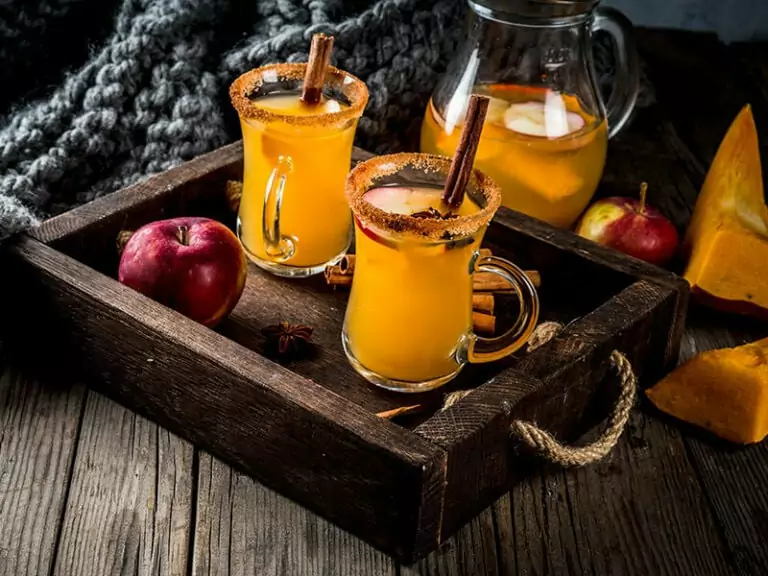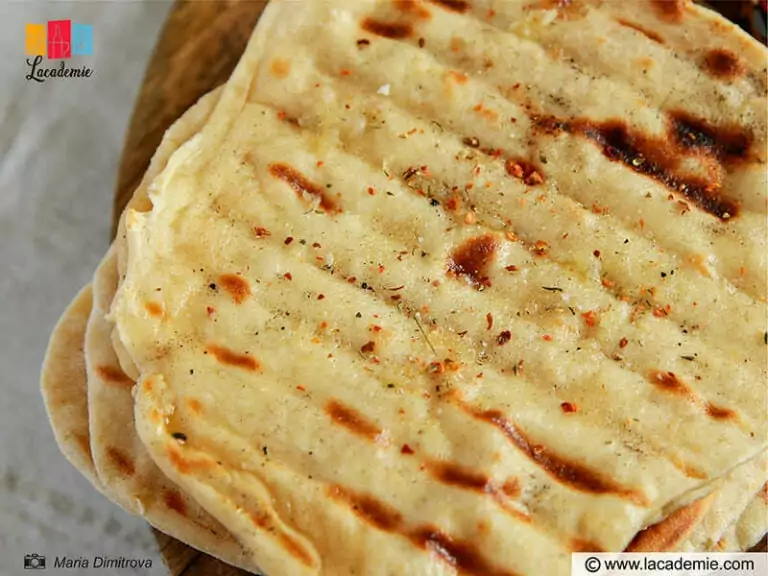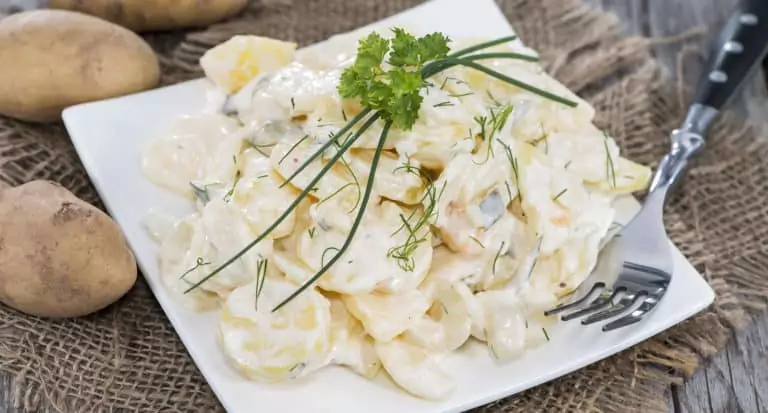Bulgaria (or the Republic of Bulgaria) is a European country with rich cuisine. Besides their food, Bulgarian drinks feature a wide variety of options, including normal and alcoholic drinks.
They are perfect accompaniments to typical Bulgarian foods and increase the quality of your meals. Furthermore, many Bulgarian drinks share some characteristics with other Balkan countries’ beverages. So this leads to the question: what makes them stand out from others?
To have a comprehensive answer, let’s dig into these 20 treasures that you should try once in Bulgaria. And you will be amazed by how they are made, or their flavors that you can hardly forget after one sip.
Wait no more! Let’s begin with the list of Bulgarian alcoholic drinks.
Uncovering The Best Alcoholic Drinks In Bulgaria
Bulgaria is a prominent wine and beer producer in the world. Therefore, the quality of their wine and beer is undoubted. But do you know that the country is heaven for some unique distilled liqueurs? Keep reading to find out!
1. Rakia (Ракия)
Alcoholic Drink
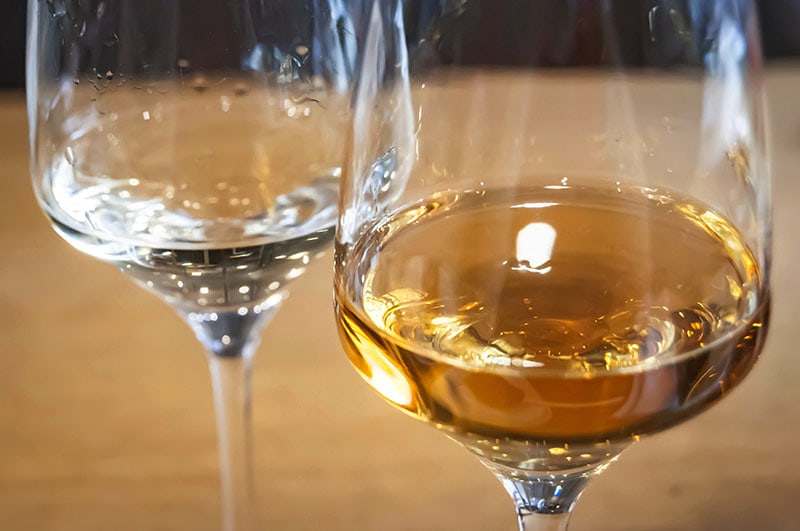
Rakia is a national drink in many Balkan countries, including Bulgaria. The exact origin of Rakia is still under debate, but some historians claim this drink originated in Bulgaria. FYI, there are 12 brands of Bulgarian Rakia recognized by the European Union through PDO and PGI.
In different Southeast European countries, it can be considered as brandy. Overall, this alcoholic drink is made by distilling fermented fruit. In this country, grapes, plums, and apricots are the most common materials, so this brandy’s main flavor is fruity yet not always sweet. It’s also juicy, delicious, and enticing.
It is typically colorless, but if you infuse it with other ingredients, like herbs, or store it in wooden barrels, Rakia might have other shades. The ABV of Rakia is relatively high (usually 40% ABV) while homemade Rakia can be stronger (typically 50%).
To enjoy it, people normally pour it into a special small glass and consume it at room temperature. You can add ice cubes if desired.
Where to buy: Liquor shops or it can be prepared at home.
A short demonstration of how to make Rakia in Bulgaria.
2. Mastika (Мастика)
Alcoholic Drink
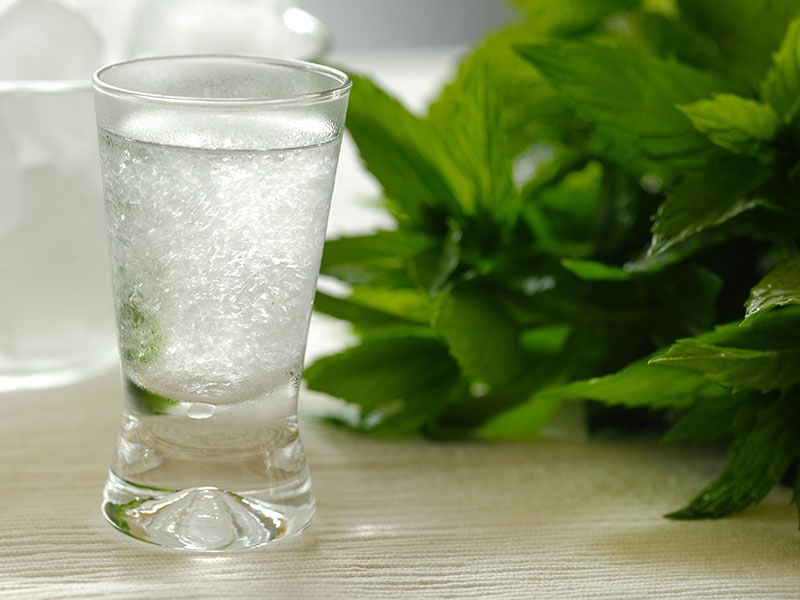
Another popular drink in Bulgaria that you need to try is Mastika (or Mastiha). It is a Bulgarian strong anise-flavored drink made from alcohol that is flavored with essential oil distilled from star anise, green anise, or fennel (wild fennel) and sweetened with sugar.
FYI, in Greece and the Mediterranean countries, Mastika is made from mastic – the resin of mastic trees that is popular in the Mediterranean areas. In Bulgaria, due to the latitude where it is located, the mastic tree does not grow.
It is also a common anise-aperitif served before a meal to stimulate the appetite, making it one of the favorite drinks in this nation. However, please note the alcohol content of Mastika is pretty high, ranging from 47% to 50%.
You can consume it straight with ice or in a cocktail called Oblak (meaning “cloud”), which contains Mastika and Menta (a mint liqueur).
Where to buy: Liquor stores
3. Menta (Мента)
Mint Liqueur
When the summer comes, Bulgarians’ favorite beverage is Menta. This is a mint-based liqueur normally packed in green or clear-color bottles.
Unlike the above liqueurs, Menta has a lower alcoholic percentage (from 21% to 25%). Plus, its flavor is pretty sweet and fresher, so Menta would be easier to enjoy on its own. And as it is a refreshing drink during the summertime, Menta is best consumed cold.
It is also a perfect mixer for creating some special Bulgarian cocktails, for example, Oblak. Moreover, Menta is a good option as a digestif.
Where to buy: Liquor stores
4. Oblak (Облак) – Cloud
Cocktail
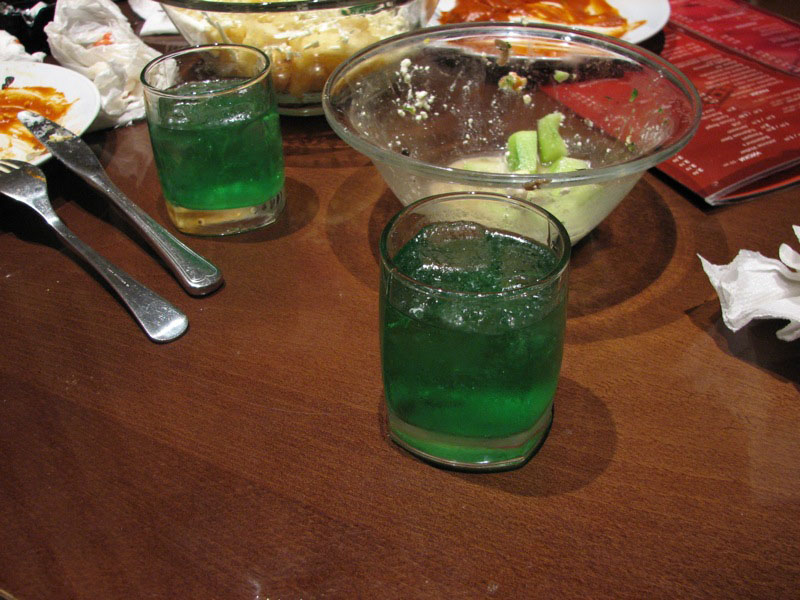
In Bulgarian, Oblak means cloud, referring to a tasty cocktail with attractive color.
Oblak features the best of both worlds of Mastika and Menta. This is a loved after-dinner drink or a trendy cocktail in Bulgaria.
With only 2 ingredients (at a 1:1 ratio) and simple preparation, everyone can create this sophisticated cocktail at home. It is usually served on ice to enhance the refreshment, making it a fantastic drink to sip on hot days.
Where to buy: Restaurants, pubs/bars, or you can make it yourself
5. Wine (Вино)
Alcoholic drink

Producing wine is a big industry in Bulgaria. It can trace back to the Thracian period, which was thousands of years ago. In the 1980s, the country was the second biggest winemaker in the world.
Grape growing has played a major part in Bulgarian agricultural items. With numerous grape varieties, the country has created many wine products. And red and white rines are obviously 2 main types.
Furthermore, they have 5 separate viticultural regions of wine-making, including the Danubian Plain, Black Sea, Rose Valley, Thracian Lowland, and Struma River Valley.
Each region has distinctive wine varieties with different characteristics, depending on what kind of grape they grow in this region. Some famous Bulgarian wines are Mavrud, Gamza, or Dimyat.
Where to buy: Restaurants, local wine/liquor shops, etc.
Let’s travel to Bulgarian vineyards and learn more about their wines.
6. Mavrud (Маврут)
Red Wine

Mavrud is a popular red wine in the country, especially in the Thracian Lowland region (South Bulgaria). It is also the name of the grape variety, known for small, dark thick -skinned fruits and late ripening.
The resulting wine has a deep ruby color and a delicate blackberry note. Mavrud stored in oak barrels features complex tastes and aromas. On the other hand, the levels of tannins and acidity in Mavrud are also high to create a spicy and tannic character.
Quick fact: The name stems from a Greek word that means black, likely in reference to the color of the grape variety.
Where to buy: Wine/liquor stores, restaurants, pubs/bars.
What does Mavrud taste like? Here is the answer.
7. Pelin (Пелин)
Wine With Herbs
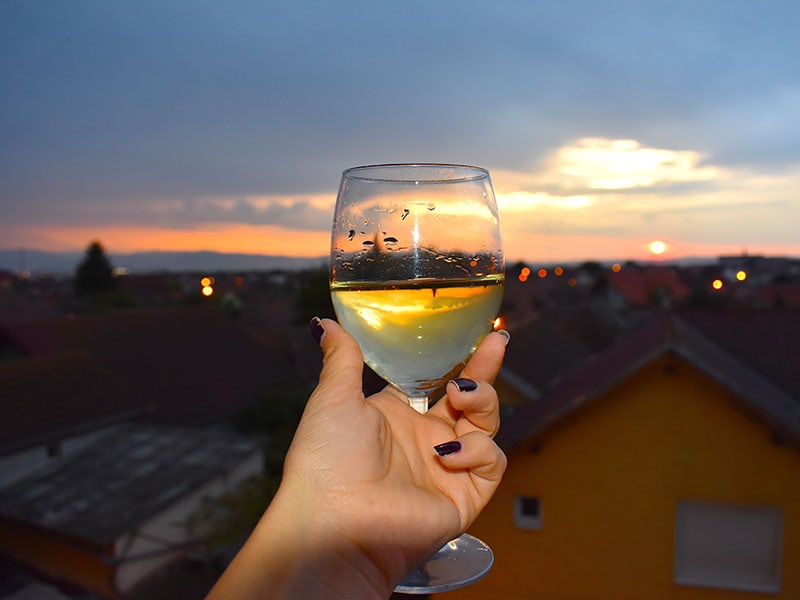
Pelin is a mixing wine flavored by Artemisia absinthium (aka wormwood) during fermentation. This is the same herb people use to make absinthe. However, absinthe is a spirit, not wine like Pelin.
The original Pelin wine recipe used dried absinthe stems and flowers. They fermented the wine and flower in a textile bag for 5 to 7 days. If the fermentation takes too long, it results in an extremely bitter drink.
Besides these main components, Pelin wine can be infused with other flavorings, such as yarrow, St. John’s wort, lemon balm, chamomile, sage, thyme, etc. But in general, this wine has a bitter taste.
People can create Pelin from white or red wine, or they can use Pelin to make carbonated drinks.
Where to buy: Alcohol shops
8. Bulgarian Beer (Българска бира)
Beer
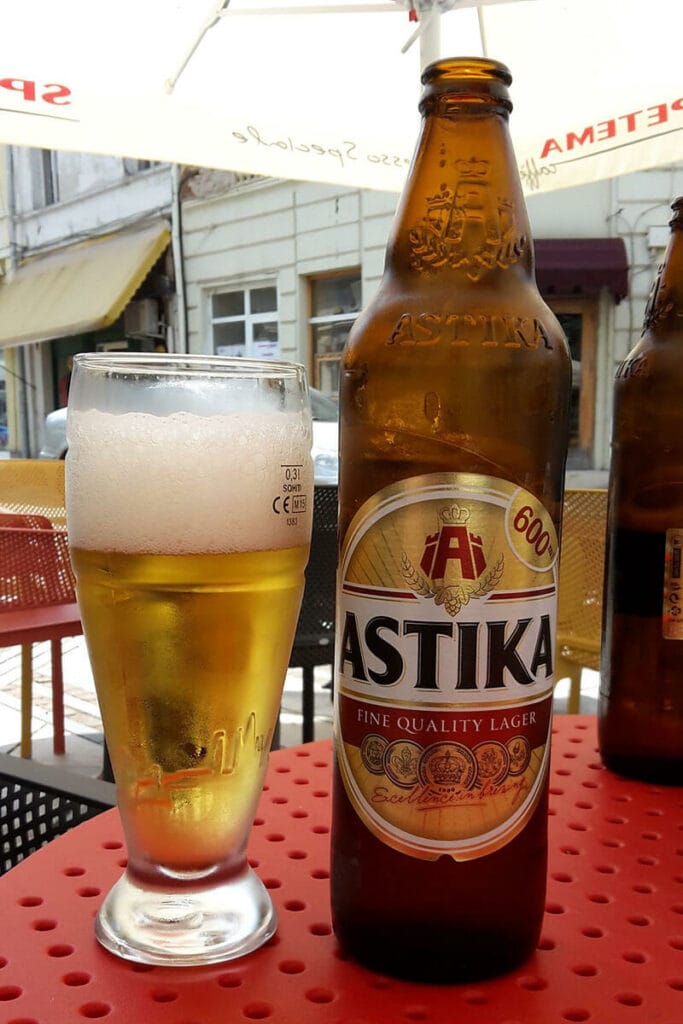
Astika is a national Bulgarian beer established in 1980.
Next to wine, Bulgaria is also a significant beer producer with many national manufacturers. Unlike a long-standing wine-making industry, the appearance of beer was relatively new, dating back to the 19th century in the country.
Today, there are many breweries in the country. Some are run by locals who produce different types of craft beers, while others are owned by international producers, such as Heineken or Carlsberg.
You can choose from some popular brands: Kamenitza, Zagorka, Stolichno, Shumensko, and more. Or some different types of very interesting craft beers are Glarus, Divo Pivo, Ailiak, Dunav craft, etc.
In Bulgaria, two primary varieties of beer are produced – light beer (lager) and dark beer. The light lager is favored due to its crisp, refreshing taste with mild bitterness and is particularly popular during the summer months.
Conversely, dark beer boasts a sweet, caramel, and malty flavor and is more frequently consumed in the winter.
Beer has been a part of communities’ lives. Many beer festivals are held annually in many big cities in Bulgaria, such as Bansko, Gabrovo, Pleven, Sofia, etc. Bulgarian beers are pretty high in ABV, but some brands offer non-alcoholic options as well.
Where to buy: Restaurants, supermarkets, bars/pubs, etc.
Other Refreshing Bulgarian Beverages: A Guide To Non-Alcoholic Drinks
These Bulgarian drinks are a nice blend of traditional and modern flavors and techniques in making them. From tea/coffee to various kinds of sweet drinks, these beverages offer a better alternative to alcohol. So come along and explore them in this part.
9. Turkish-style Coffee (Кафе по турски)
Coffee
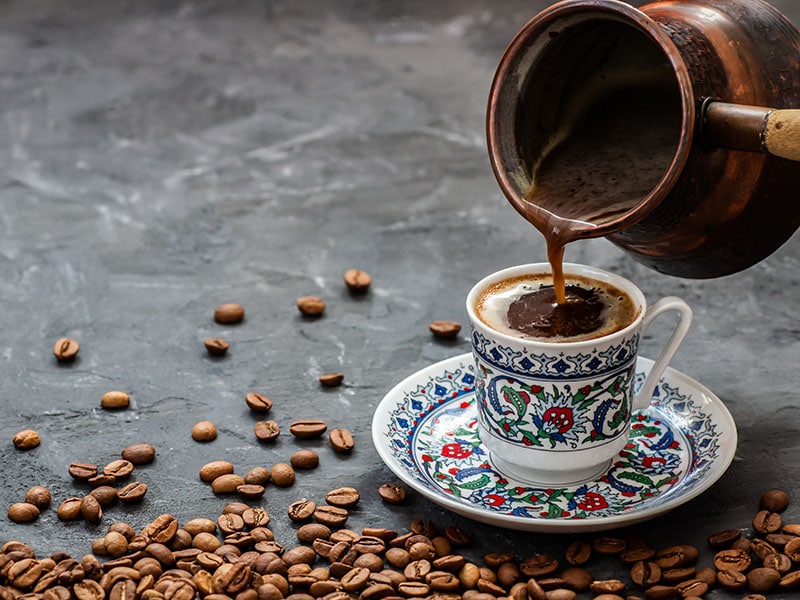
Turkish-style coffee has been a common drink among Eastern Europeans, particularly in Bulgaria since Ottoman times.
It is finely ground coffee brewed in a small copper pot with a long handheld (called dzhezve). This tool is specially designed for making Turkish coffee.
The coffee is boiled with sugar in a pot. This brewing method results in a velvety and thick texture. There is a creamy foam on top, while the coffee ground stays on the bottom of the cup. That’s why Turkish coffee also has a bold taste with a strong aroma.
Where to buy: Coffee shops or you can prepare it at home.
10. Herbal Tea (Билков чай)
Tea
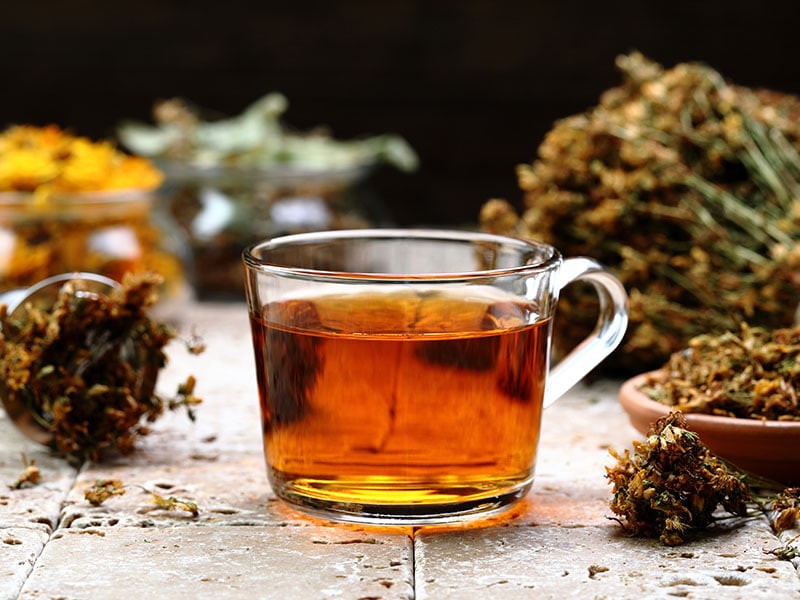
Bulgaria is not a traditionally tea-drinking country. However, drinking herbal infusion tea is believed as one of the most convenient ways to improve human health in this nation. Therefore, many locals love to keep these teas in the pantry in case their family member gets sick.
In Bulgaria, herbal tea is made from native plants or herbs. The flavors of herbal tea vary based on the ingredients. Common ones are rose hips, mint, thyme, elderflower, and mountain herbs.
They generally have a pleasant aroma and are high in benefits. Many have a calming effect and anti-inflammatory levels. For more information, the most common types of tea are Stara Planina, Utro, Alpinist, Trakia, Tourist, Buket, etc., which include various combinations of herbs.
Where to buy: Tea stores, markets/supermarkets, coffee shops, restaurants, etc.
11. Mursalski Chai (Мурсалски чай)
Herbal Tea
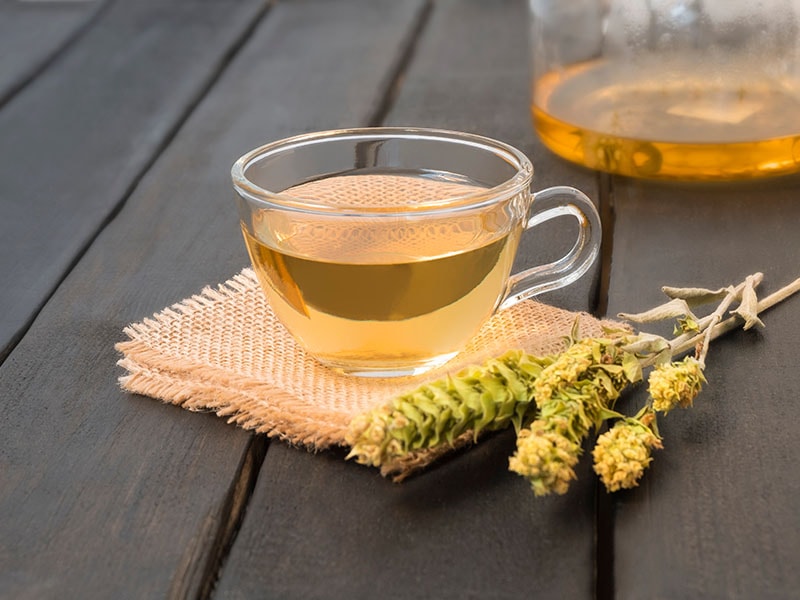
Speaking of beneficial Bulgarian herbal tea, Mursalski chai is a great choice. It is a type of herbal tea made from an exotic plant called Sideritis Scardica. This medicinal plant is commonly found in the Rhodope Mountains; therefore, Mursalski is also known as Mountain tea.
Mursalski chai is free of caffeine. It has delicate herbal notes with a mild minty aroma. This drink is ideal for adults. Children can consume it too, but it should be advised by a doctor, or they have to drink it at the appropriate level. You can consume the tea hot or cold.
In terms of health benefits, this tea is recommended for fighting colds, soothing asthma and bronchitis, or calming your nervous system. It also lowers blood pressure to keep you safe from a heart attack or stroke. The antioxidant level in Mursalski chai is impressive as well.
Where to buy: Tea shops, markets, or you can order online.
12. Ayran (Айрян)
Yogurt Drink
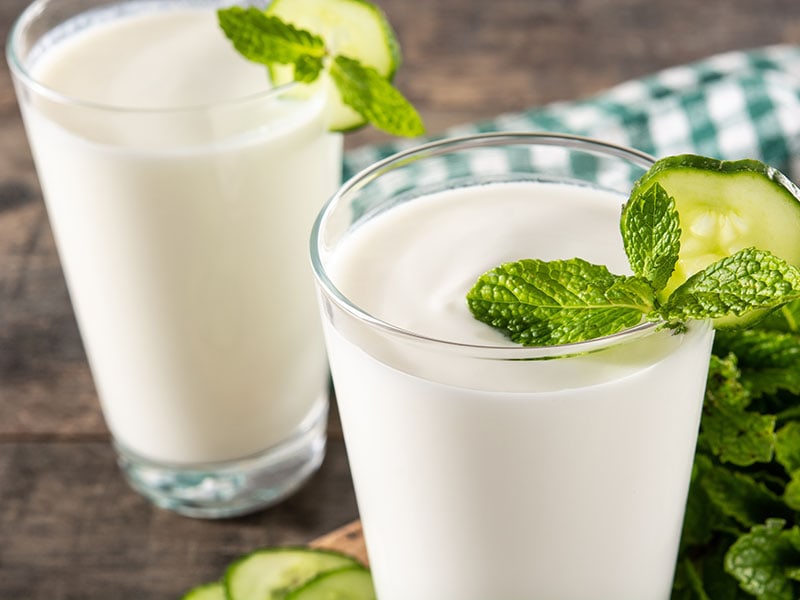
Here is a drink for all ages – Ayran. It is a popular yogurt drink that you can easily find in Bulgaria and other Balkan nations. What’s better, it is easy to create at home since it contains a few ingredients (e.g., Bulgarian yogurt, water, and salt).
However, you can’t make Ayran by using any regular yogurt. It must be genuine Bulgarian yogurt, which contains Lactobacillus Bulgaricus – a unique bacteria that is only present in the Bulgarian climate.
Regarding Ayran flavor, it is a refreshing and tangy beverage that locals love to sip during the summer months to fight the heat. It can also cure hangovers or simply quench your thirst effectively.
This beverage is known for its healthy properties. Indeed, yogurt is a wonderful source of probiotics and many nutrients. With the addition of salt – an electrolyte replenisher, Ayran is undoubtedly a hydrating drink. For more flavor, you can add some finely chopped mint leaves.
Where to buy: Cafes, restaurants, or you can prepare homemade Ayran.
Have you tried Aryan before? If not, let’s check this taste test first for more details.
13. Kefir (Кефир)
Fermented Milk Drink
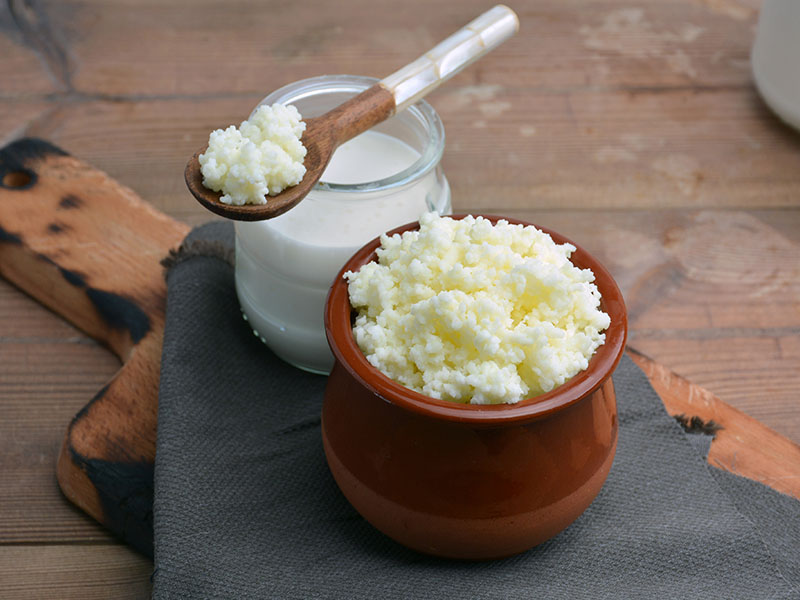
Kefir is a superfood with live beneficial bacteria (aka lactic acid probiotic). These bacteria are also found in yogurt. However, Kefir is not a type of yogurt.
In fact, it is cultured milk with a milky, creamy aroma and a yeasty flavor. They are available in different forms, including ready-made drinks packed in bottles or in Kefir starters so you can make this milk drink by yourself.
This fermented drink contains no preservatives, artificial color/flavor, or additives, making it a very healthy drink for everyone.
Where to buy: Markets/supermarkets, or you can make Kefir at home.
14. Tarator (Таратор)
Cold Soup (But Drinkable)
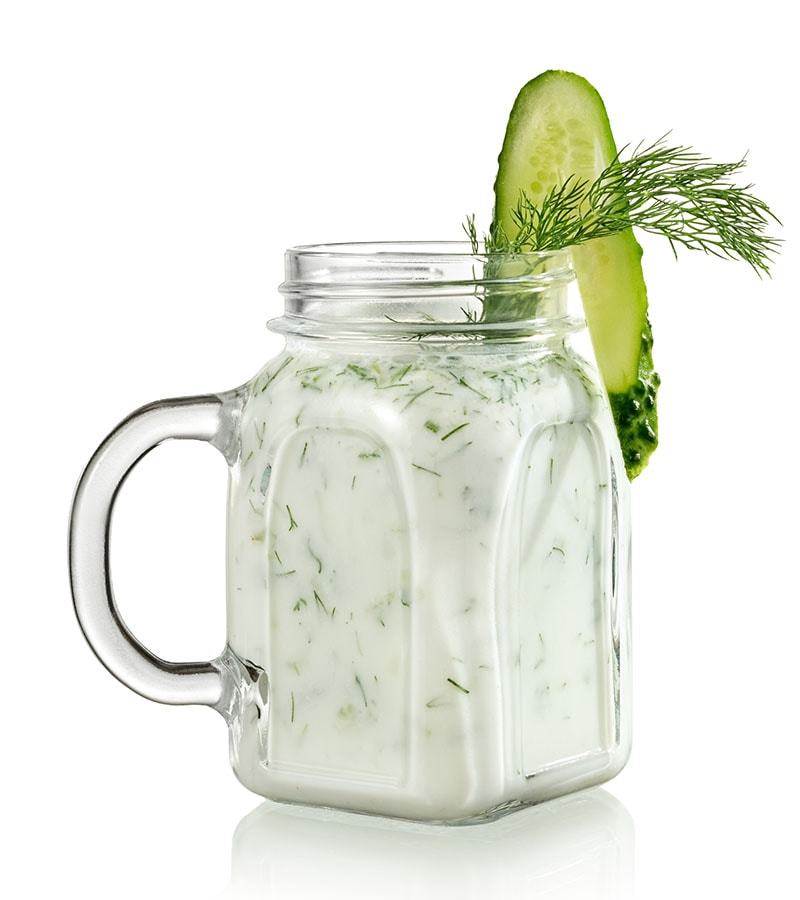
Tarator is an authentic Bulgarian cold soup made with yogurt and cucumbers as the main ingredients.
At this point, you might wonder why this soup is included in this drink list. Well, in the hot summer months, some Bulgarian restaurants serve Tarator in big beer mugs since it is drinkable. That means it can be a super refreshing drink to blow away the heat.
Plus, it is light, nutritious, and simple to prepare. There is no cooking involvement. All you need to do is mix components in a big bowl and enjoy. For more information, if you prefer consuming Tarator as a food, it is an ideal first course, side dish, or as a refresher between courses.
Where to buy: Restaurants or prepare it at home.
Making Tarator can’t be easier with this instruction.
15. Elderberry Juice (Сироп от бъз)
Beverage Made From Syrup
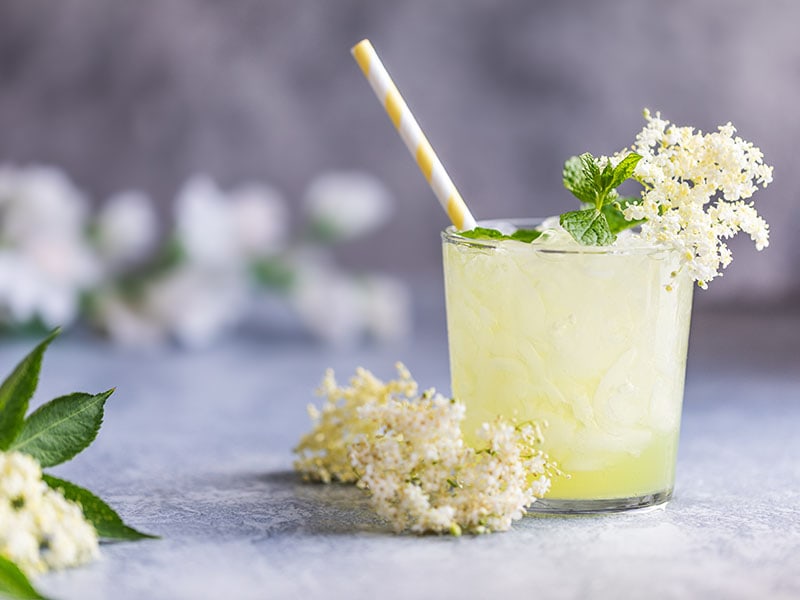
Elderberry (Sambucus Nigra) is prominently grown in Bulgaria, particularly in the village. These deep purple fruits are a high-quality source of antioxidants, anthocyanins, and other nutrients.
In Bulgaria, when it comes to elderberry juice, it refers to a drink made from elderflower syrup. Elderberries are not eaten even when ripe, because the seeds in them are poisonous.
As a result, the locals prepare syrup and prepare a beverage from it. However, the syrup is not prepared by squeezing the fruits, but by a different technology.
For more information, there is a product made from the ripe fruits of the elders and it is consumed only as a medicine to improve immunity. It is not diluted, but drunk at 1 teaspoon per day. Plus, this juice is not as widespread as elderflower syrup.
Where to buy: Bulgarian restaurants, beverage stores, etc.
16. Compote (Kompot) (Компот)
Sweet Drink With Whole Fruits
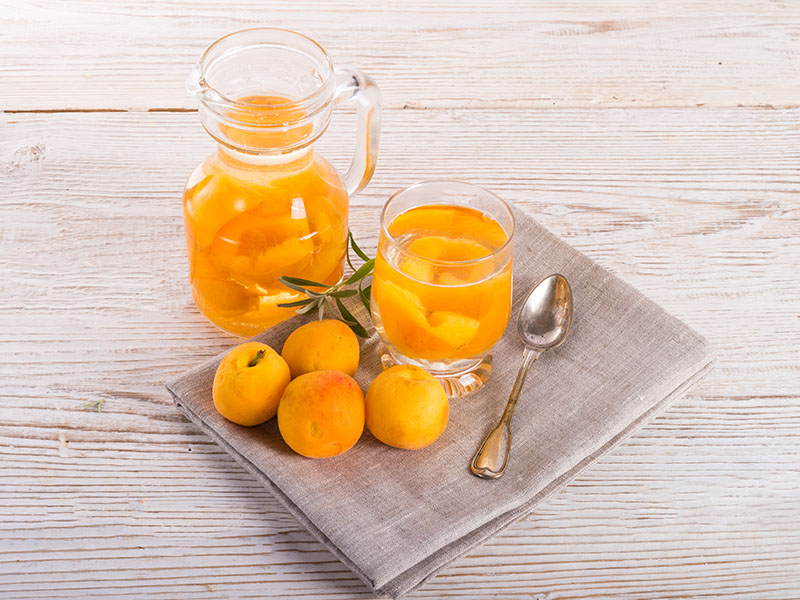
This is a Bulgarian dessert drink made from cooking fruit, sugar, and a lot of water. Ideal fruit varieties to make Compote are peaches, strawberries, apricots, sour cherries, apples, plums, etc. Some people also add cinnamon or vanilla to enhance the flavor.
Besides Bulgaria, Compote is also a famous non-alcoholic drink in Eastern, Southern, Central Europe, and the Middle East. It is very easy to prepare, and people can consume this drink on its own, in their meals, or even on special occasions.
The locals normally prepare Compote in a big sterilized jar and store it in their pantry or basement. It can be served hot, cold, or at room temperature, depending on your preference or season. In conclusion, this drink is surely a nutritious and satisfying beverage for any home.
Where to buy: Restaurants, stores, or you can make it at home.
17. Lemonade (Лимонада)
Lemon-flavored Beverage
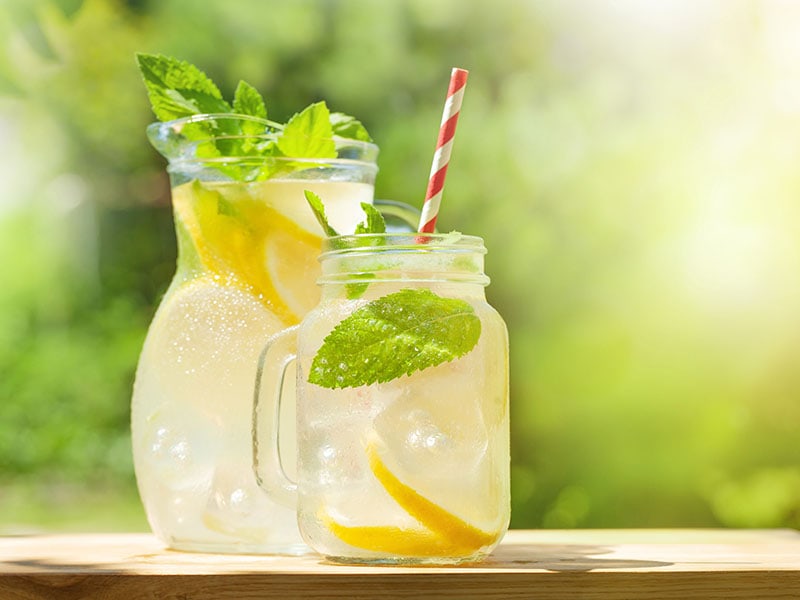
Lemonade is a worldwide beverage that typically contains freshly squeezed lemon juice, water, and sweetener. However, if you order a lemonade, what you will receive is not a traditional one as I just described.
Instead, Bulgarian lemonade has a yellow color made with soda water and citric acid notes from the lemon. Besides soda water, it can be Sprite or simply water. However, it is the only variant of lemonade that was sold during the Communist regime in Bulgaria.
Nowadays, in cities’ restaurants, especially in the summer, different types of lemonades are available, which are made from freshly squeezed lemon or orange diluted with sparkling water and can be flavored with different syrups, like strawberry/raspberry/mango syrup, etc.
In general, this lemonade is a refreshing drink for all ages. It is a great way to hydrate and cool down on hot days.
Where to buy: Restaurants, beverage stores, etc.
18. Etar (Етър)
Sweet Carbonated Soft Drink
Etar is a Bulgarian sweet carbonated soft drink. In reality, this drink dates back to socialist times. But at this time, Western brands, like Pepsi or Cola, were not available here.
Eatar can be seen as a representative of Bulgarian culture and heritage or a forgotten past. It is famous for its light brownish-orange color and bright flavor, making Etar a great alternative to other sugary soft drinks. Moreover, they are typically sold in glass bottles.
Where to buy: Groceries
19. Boza (Боза)
Fermented Drink
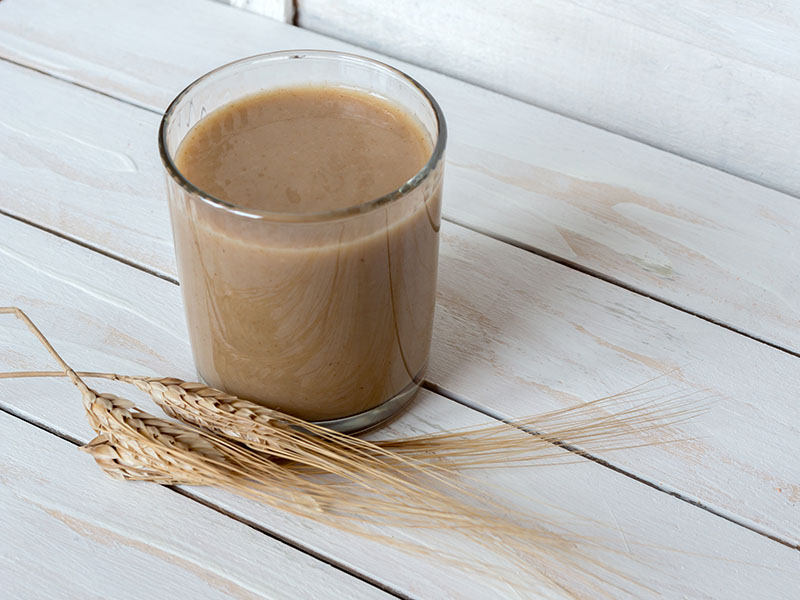
Boza (or Bosa) is a sweet drink that comes from the Middle East. However, its popularity in Bulgaria and its surrounding countries is huge.
Boza is a malt beverage made from fermented wheat or millet. This drink has a low alcohol content (approximately 1%) with a thick consistency. The flavor is sweet and slightly sour. But the flavor also varies based on the cereal used.
In Bulgaria, this is a year-round beverage that you can buy at stores or recreate by yourself. For a fulfilling treat, Boza is an excellent accompaniment to Banitsa (a Bulgarian pastry) or Gevrek (a kind of bread). The locals also love to have it in the morning or afternoon.
Where to buy: Groceries, markets, restaurants, or you can make it at home.
Boza is an interesting drink to enjoy as breakfast with Banista (Bulgarian cheese pie). Check this taste test to know more about them.
20. Mineral Water (Минерална вода)
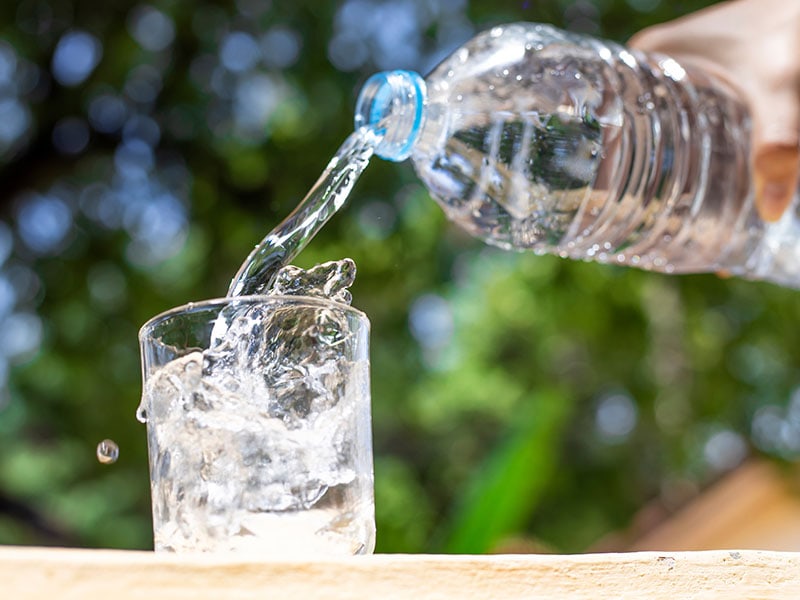
This nation is rich in sources of natural mineral springs. Many sources have healing properties in the treatment of various health conditions, thanks to the rich mineral contents in the water.
There are many well-established mineral water brands in the country. However, each brand has its own distinctive taste. The reason for the varied flavor is due to the temperature and mineralization of where they get the water.
Famous locations are in the capital Sofia, Vershets, Hisarya, Devin, etc. The Bulgarian government highlights the sustainability of using water. They also follow strict rules to produce high-quality products.
They are widely available in bottles. Mineral water is also cheaper than regular purified water in Bulgaria.
Where to buy: Stores, markets/supermarkets, restaurants, etc.
Ideal Homemade Bulgarian Beverages To Try Out
Next to several store-bought drinks that I have introduced, there are a few beverages that you can try yourself. Here are some instructions to prepare 2 refreshing Bulgarian drinks, such as Ayran and Compote.
1. Ayran (Айрян)
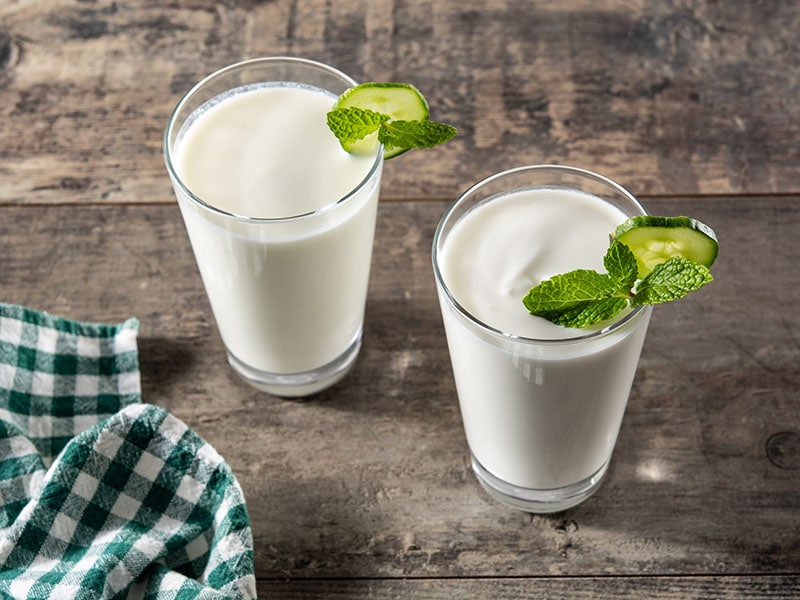
Ayran is a yogurt-based drink with highly nutritious contents. It tastes tangy and slightly salty. So how to make it at home? Keep reading to find out. But first, let’s prepare some ingredients such as:
- 4 cups of yogurt (you must choose Bulgarian yogurt)
- 2 cups of water
- A pinch of salt
Step 1: Mix Ingredients
Place ingredients in a blender. Mix them until combined (around 10 to 20 seconds)
Step 2: Serving
Serve chilled. You can add a bit of finely chopped mint on top if desired.
2. Compote (Компот)
Compote is enjoyed in Bulgaria for generations and continues to be a staple in the country’s cuisine. Making it is also easy. Here is what you will need.
- 12 ounces of cherries (stem removed)
- 1/2 cup of sugar
- 8 cups of cold water
Step 1: Cook Ingredients
Mix fruits, water, and sugar in a pot. Bring it to a boil over high heat. Once boiling, reduce the heat to simmer for 15 minutes.
Step 2: Remove The Pot From The Heat
Remove it from the heat, then allow the mixture to cool down completely and allow the flavors to blend for a few hours.
Step 3: Serving
Enjoy Compote warm or chilled based on your reference. Remember to have a few pieces of fruit per portion.
For storing, you should keep the drink in the fridge for up to 5 days. FYI, the reason for making compotes in Bulgaria is to preserve the fruits that ripen in the summer so that they can be consumed in the winter. As a result, compotes are usually prepared in jars.
Take A Journey To Bulgarian Cuisine Through Its Unique Drinks
With a rich and diverse history, Bulgarian cuisine and its drinks are impressive with a wide range of options. They can fit every taste preference, from wine and spirits to free-alcohol beverages, like herbal tea or juices.
So whether you are looking for a relaxing or healthy beverage, these Bulgarian drinks have something to offer everyone. And with this list, I hope you have grasped more about the history as well as the richness of the country’s culinary landscape.
Finally, if you find this post interesting and helpful for your next trip to Bulgaria, please click like or share it with others. Thank you, and have a nice day!



